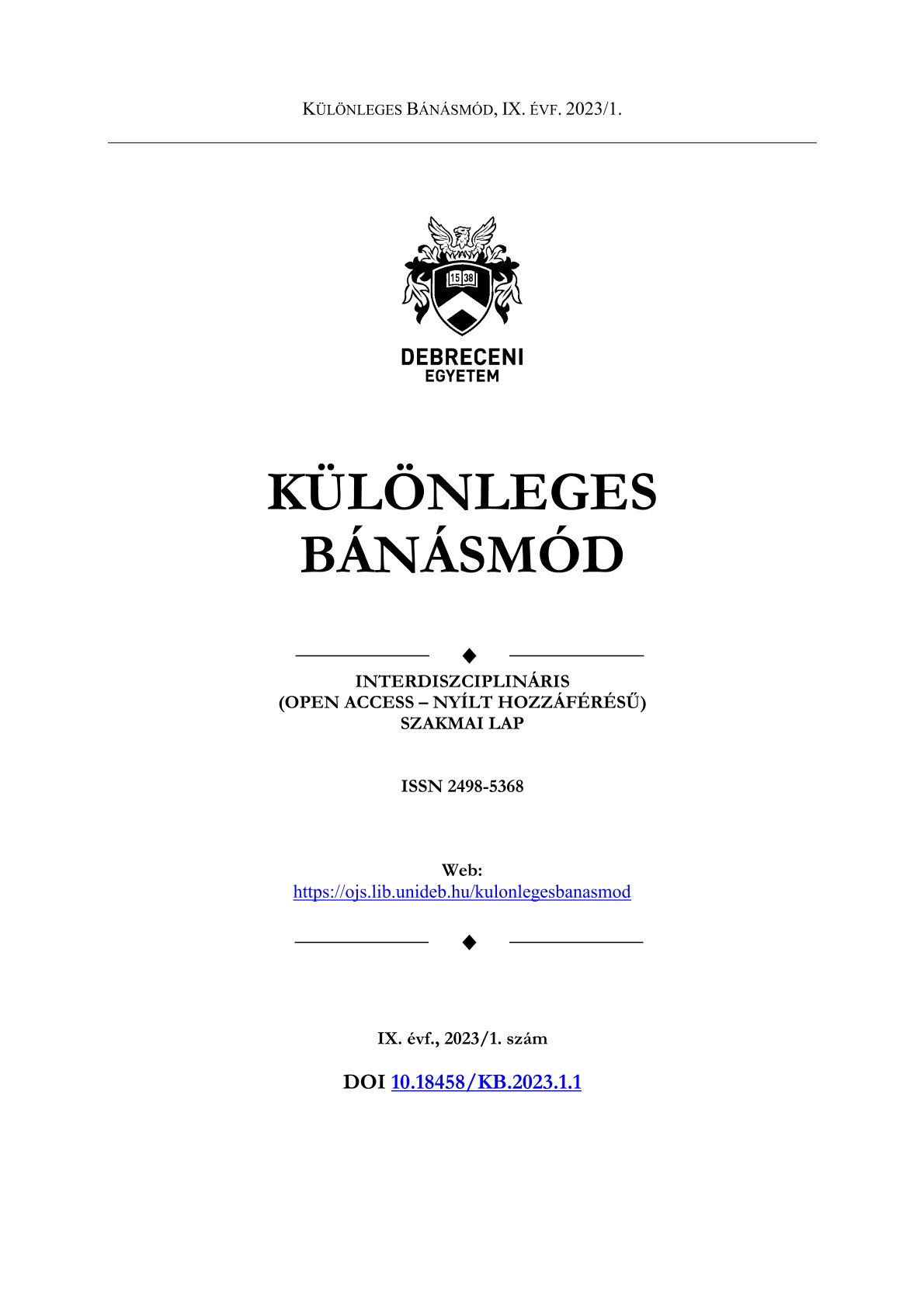A KISGYERMEKKORI SZEMÉLYISÉGFORMÁLÁS ZENEI NEVELÉSSEL
Szerző
Megtekintés
Kulcsszavak
Licenc
Copyright (c) 2023 Borbála Tamásiné Dsupin (PhD)

This work is licensed under a Creative Commons Attribution-NonCommercial-NoDerivatives 4.0 International License.
Hogyan hivatkozzuk
Absztrakt
A tanulmány a magyar kultúra egy kicsi, de gyermekeink szempontjából egyik jelentős szegmensére, a 3-7 éves korosztály zenei nevelésére fókuszál. Központi témája, hogy megvizsgálja miként lehetséges, hogy a népi játékok és a hozzájuk kapcsolódó mozgások adaptálása az egyik legkomplexebb fejlesztőerő e korosztály személyiségfejlődésében. Hiszen a kultúraátadás szempontjából ez az időszak alapozó jellegű, s az esztétikai nevelés területén integratív szerepet tölt be. Az óvodás gyermek zenei fejlődésével emlékezete, képzelete, asszociatív képessége, kreativitása, figyelme, érdeklődése állandó örömteli tevékenység útján fejlődik, hiszen a népi játékhoz kapcsolódó mozgását ebben a korban még nem a szöveg jelentése, tartalma, hanem a dallam és annak ritmusa, valamint az ezekhez kötődő spontán örömérzet irányítja és határozza meg. Az érzelmi nevelés, a szocializáció, az értelmi és az anyanyelvi fejlesztés folyamatában is nyilvánvaló a zenei nevelés, s ezen belül a népi játékok szerepe. A vizsgált és bemutatott összefüggések bizonyítják, hogy a népi játékok hatására olyan készségek alakulnak ki a gyermekekben, amelyek birtokában iskolaéretté válnak, s megállják majd helyüket későbbi felnőtt életükben is.


 https://doi.org/10.18458/KB.2023.1.189
https://doi.org/10.18458/KB.2023.1.189